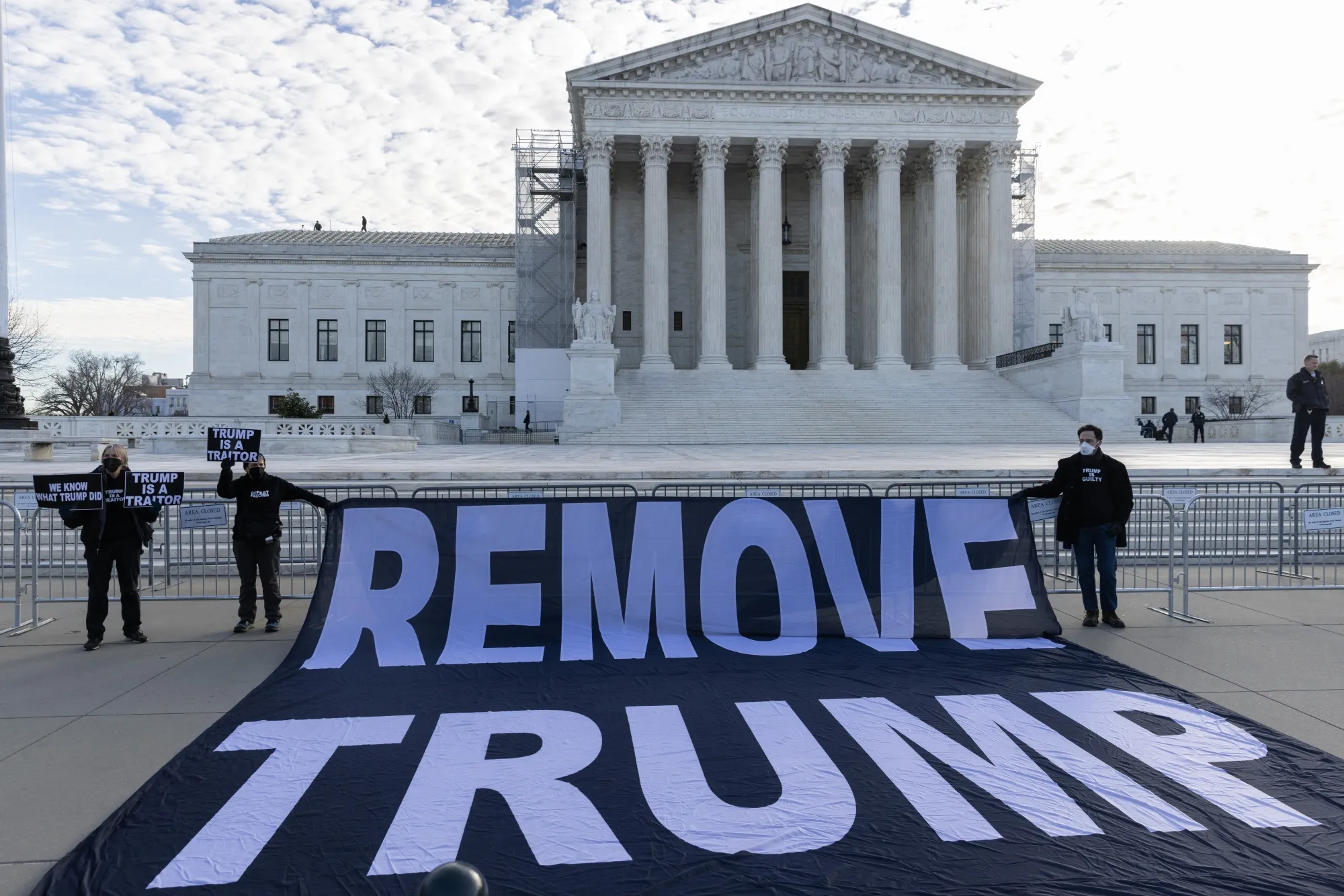Division of Powers: An Unexpected Link to Nuclear War?
Can the upholding of the division of powers potentially propel the world towards nuclear war? This thought seems to have found resonance within the boundaries of the federal government. In a fortunate turn of events, the U.S. Court of International Trade recently invalidated Pres. Donald Trump’s tariff impositions as illegal. The lawsuits had been initiated by a group of small businesses and 12 states. This litigation is likely to continue, probably reaching the final threshold of the U.S. Supreme Court. Thus, it becomes critical to consider the government’s arguments hinting at the looming danger of nuclear conflict.
A case put forward by Princess Awesome LLC and 10 other small businesses contesting the tariffs instigated this situation. These enterprises have borne considerable financial distress due to the tariffs. This suffering spurred them to seek legal aid, as is the right of every United States citizen. They posited that the power to impose tariffs lies with Congress, as per the Constitution, and not the President.
The government’s main contention is that, on matters of foreign policy and national security, the ‘triumph of the Nation’ hinges on the president’s unfettered and autonomous decision-making capabilities. Consequently, the government argues that the International Emergency Economic Powers Act provides the president unbounded authority to leverage tariffs against overseas nations that seemingly pose a risk to the United States. The arguments suggest that such a tool is currently being utilized to mitigate incessant import of fentanyl and address enduring trade imbalances.
In the annals of U.S. history, it is not uncommon for the president to stake claims of supremacy in issues of foreign policy and national security. The creation of the presidency as a unilateral executive body was to ensure rapid decisions amidst national security crises. However, our Constitution provides a counterbalance, assigning an essential role to Congress in foreign policy matters.
The Senate is responsible for ratifying treaties, whereas Congress, in its entirety, holds the power to declare wars, administer foreign trade, and levy tariffs. The law does bestow significant authority on the president regarding foreign business, the ability to block transactions, freeze properties, and ban imports during national emergencies. However, the power to impose tariffs was not authorized to the president by Congress.
The government appears to reject this equilibrium. The assertion suggests that ‘only the President and his advisers possess the knowledge and expertise needed to safeguard the United States from external hazards’. This makes the case for the president being granted the authority to unilaterally impose tariffs.
The insinuation here is of magnitude – if judicial bodies adhere to the Constitutional separation of powers, they may inadvertently be edging towards nuclear war. Yet, this does not reflect the Constitution’s actual design nor does it provide a proportionate assessment of the implications. The Constitution’s architects wrestled with these dilemmas and elected to grant significant national security and foreign policy powers to Congress.
The Constitution, in fact, does not provide the president with any additional privileges during a national crisis. Nevertheless, from the year 1789, the president and Congress have adeptly maneuvered this responsibility divide. The outcome has been the establishment of the U.S. as the undisputed global superpower, the accomplishment of a multitude of trade barrier-lowering pacts, and most importantly, the avoidance of nuclear war.
Despite this, the government contends that any judicial verdict endorsing the placement of tariff power within the purview of Congress – as the Constitution originally intended – would result in ‘a foreign-policy catastrophe’. The deliberate choice to bet on the legal and constitutional invalidity of its negotiation leverage under IEEPA, allowing for indiscriminate imposition and suspension of tariffs, rests solely with the administration.
The government’s official statement redirects the burden of this decision onto its own law-abiding citizens, who have rightfully sought legal recourse. The assertion made is that their success would ‘put both the United States and the entire world in peril.’ However, such claims do not stand to reason.
The Constitution structures our government in a manner that best guarantees the preservation of individual civil liberties and lives. It serves as ‘an equal law for rulers and people, during times of war and peace, and provides equal protection to every individual, no matter the situation.’ Princess Awesome and the other small businesses banding together as plaintiffs are simply prompting that this administration also conforms to the standard constitutional regulations – nothing more. There is no conceivable harm in such an expectation.

